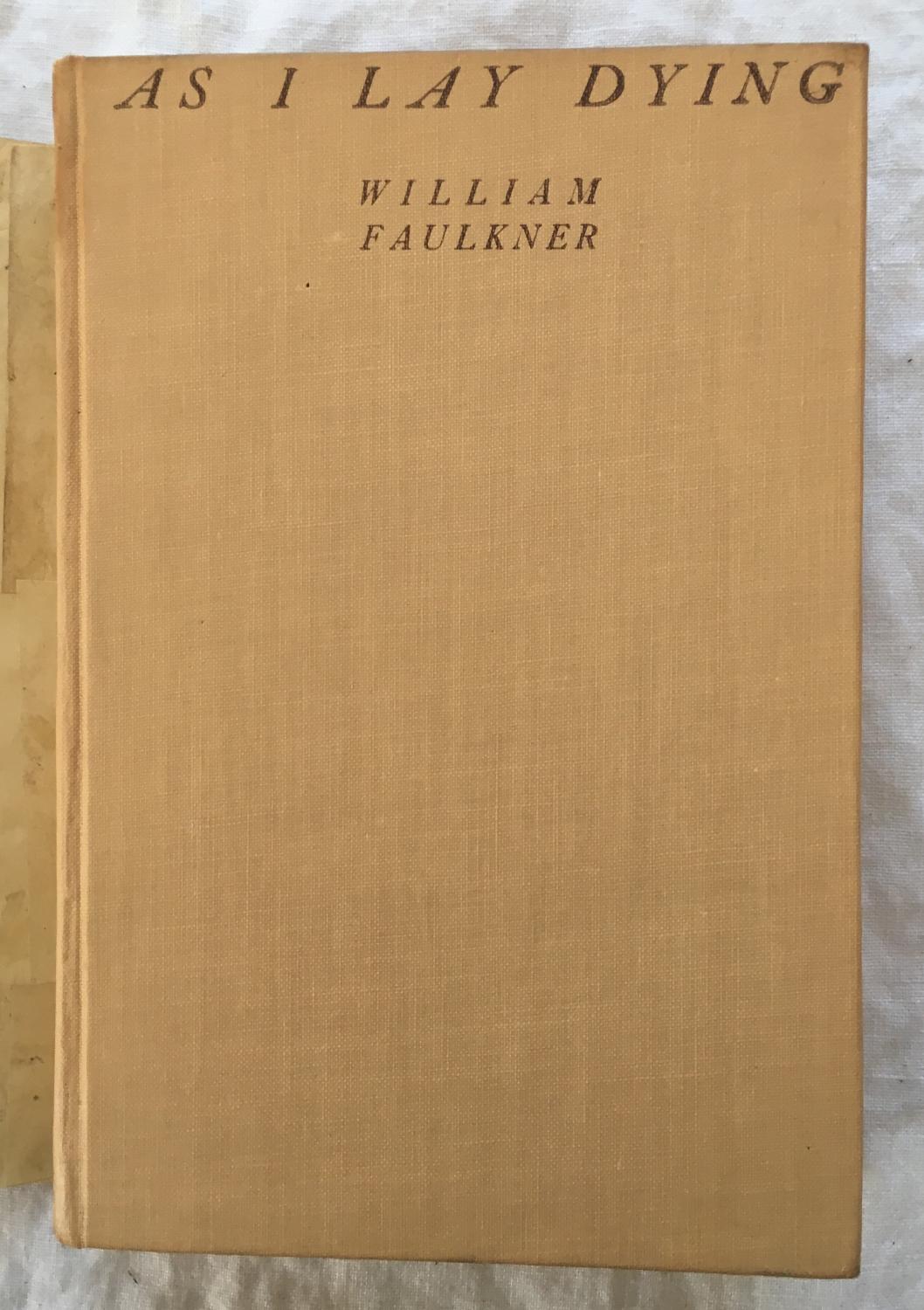

His books always appear on lists of "best books of all time" and "books you should read before you die". It might not be the best first dip into modernism, but I could appreciate it, even though I'm far from an expert.I've been working up to a William Faulkner book for years. Dalloway before this book, because otherwise I wouldn't have had the skills to appreciate this book. With minimal words and writing, Faulkner is able to transport you to a different world and to connect with characters. No explanation as of who the characters are and where they come from. Yet, life also continues for all of them and they have to move on and deal with new issues that arrive. This effects so many more people than you'd expect and in completely different ways. There is no real point to this book - it's a telling of the death of a mother, wife, matriarch and a woman in a small community.

And this book kept popping up at different moments throughout my normal day. When I finished it, I left feeling "so why did I even read this?" and then some days passed.

This is focused reading, not a simple beach read that you half read while also talking to someone. A lot of times, I had to read passages several times to really realise what's going on. Faulkner alternates between 15 narrators, jumps between time and action and makes the reader do a lot of work. This book is the perfect example of why so many people dislike modernism - it's tough. (Hence the connection with Hemingway, since they worked in the same time period) He is mostly known for The Sound and the Fury, but I read As I Lay Dying, because I loved the cover and the summary interested me immediately.Īs I Lay Dying is the story of the death of Addie Bundren and how this influences her family, community, and bystanders who were strangers before in Southern America. In case you know as much about William Faulkner as I did, which is nothing, he is a Nobel prize winning author from Mississippi, who lived from 1897 until 1962. When I went to Boston, I decided to have a little break (just a tiny one, because I did spend an amazing day at the Hemingway archives, living my dream of being a real researcher who looks at super important, life changing documents) and focused on an author who always seems to be mentioned in the same breath as Ernest Hemingway, but isn't from the same group: William Faulkner. Every single day, my life becomes more and more about my thesis and the authors connected to it.


 0 kommentar(er)
0 kommentar(er)
